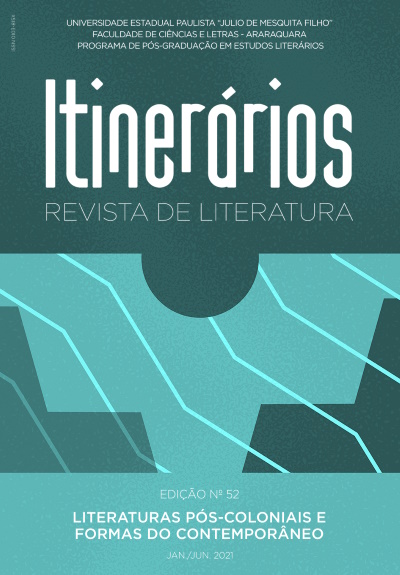A new Alcacer Quibir
questioning the imperialist discourse in two poems by Manuel Alegre
DOI:
https://doi.org/10.58943/irl.vi52.14806Keywords:
Manuel Alegre, Portuguese identity, Myth, ParodyAbstract
This work is the result of a post-doctoral internship which focused on studying the poems from the book O canto e as armas (1967), by Manuel Alegre, mainly addressing irony and parody. At that point, we suspected that the use of such procedures enabled to question myths forging the Portuguese identity. Accordingly, the theoretical framework upon which we base our analyses is provided by Linda Hutcheon in the book Uma teoria da paródia (1985), when dealing with ironic discourse and its correlated resources. In addition, we use the studies carried out by Eduardo Lourenço, on Portuguese identity, in the books Mitologia da saudade (1999) and Nós e a Europa ou as duas razões (1988). In this paper, we analyze the poems “A batalha de Alcácer Quibir” and “As colunas partiam de madrugada”. The first one takes up the conflict that marked the death of King D. Sebastião, which meant a new annexation of Portugal by Spain. The second one evokes a battle between Portugal and Angola, in the struggle of the latter for its independence. The presence of the figure of D. Sebastião, as well as other texts of the tradition, creates intertextuality with the historical event, indicating, at the same time, a critical positioning in the face of the transformation of the character into a myth. The use of similar procedures in both texts approximates them and suggests the failure arising from the Portuguese position in both war conflicts.
Downloads
Published
Issue
Section
License
Os manuscritos aceitos e publicados são de propriedade da revista Itinerários. É vedada a submissão integral ou parcial do manuscrito a qualquer outro periódico. A responsabilidade do conteúdo dos artigos é exclusiva dos autores. É vedada a tradução para outro idioma sem a autorização escrita do Editor ouvida a Comissão Editorial.

